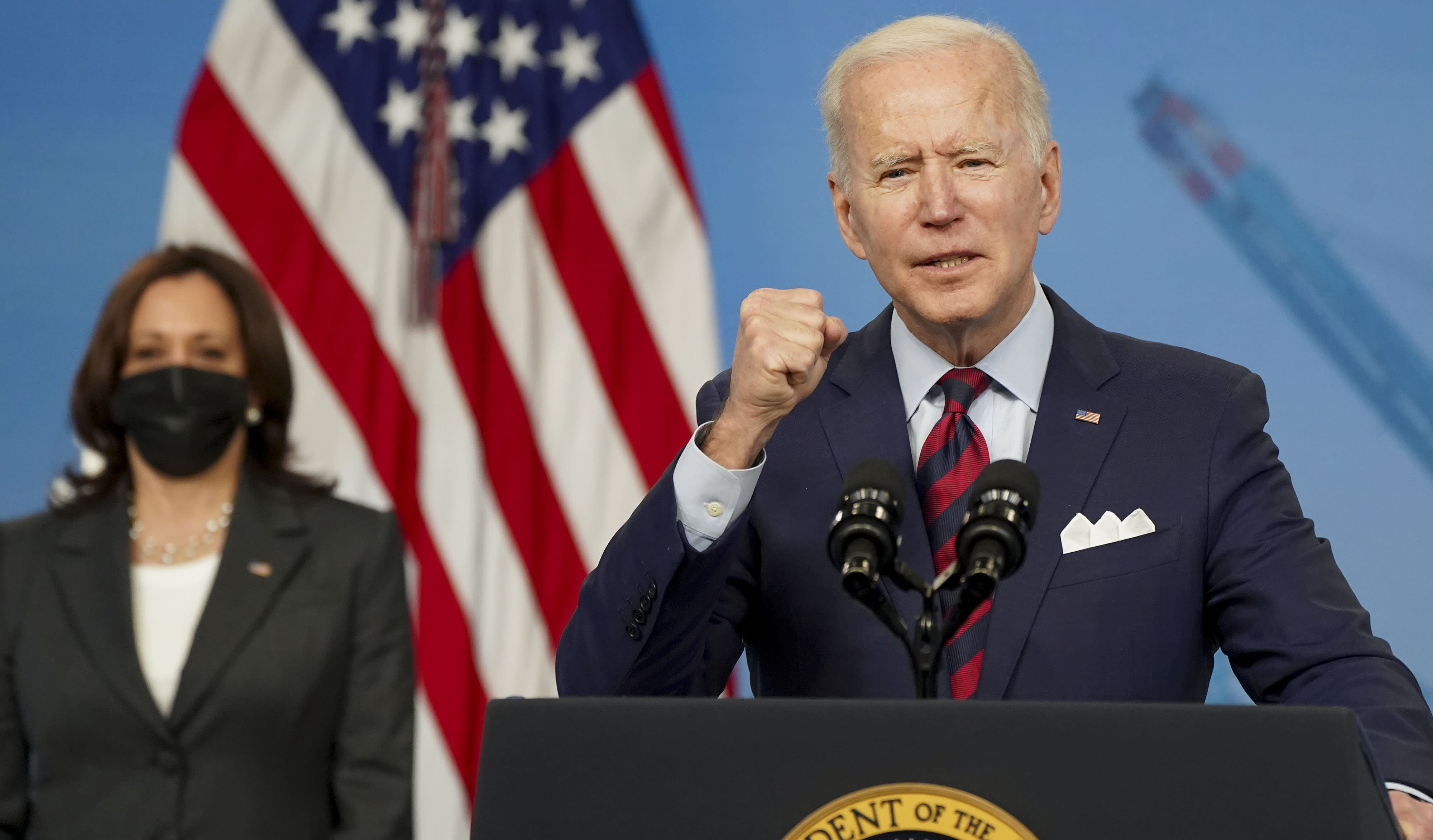President Joe Biden will formally unveil his new tax plan during his first presidential address on Wednesday that includes a key campaign promise — no one making $400,000 or less should see increased taxes.
Some experts wonder whether his sweeping plan can keep to that pledge.
“I challenge you to find an economist who will say that is even possible,” said William McBride, vice president for federal tax and economic policy at the Tax Foundation.
The reason, according to McBride, is that everyone in the economy is connected.
“If you raise tax on this taxpayer here, good luck in isolating that effect to just that taxpayer,” McBride said. “It’s not actually possible.”
More from Personal Finance:
Workers could get 12 weeks of paid leave under Biden’s plan
Selling assets to avoid a higher capital gains tax? You may trigger another tax
The Fed keeps rates near zero — here’s how you can benefit
Biden’s $400,000 income target has been a subject of hot debate as details of his tax plan emerge.
Some of the discussion has been on where that threshold would kick in. In March, White House Press Secretary Jen Psaki said it would be for families, which sparked speculation that individuals earning less than $400,000 could see higher levies as a result.
The White House did not immediately respond to a request for comment.
“For the most part, I think he can design something … where the tax increases are, in fact, targeted to people making $400,000 or more,” said Howard Gleckman, senior fellow at the Urban-Brookings Tax Policy Center.
However, some people with incomes below $400,000 may inadvertently see some effects.
“I think it’s impossible to design something that’s not going to catch somebody in some situation,” Gleckman said.
For example, former President Barack Obama set a cap at $250,000 in tax proposals he put forward under his leadership. An increase to $400,000, coupled with low inflation over the past couple of years, would mean fewer households would be affected by the policy, Gleckman said.
Much of what Biden is planning focuses on high earners.
The plan would increase the top tax rate for wealthiest Americans to 39.6%, up from 37%.
A 39.6% tax rate would also apply to capital gains and dividends for households that earn more than $1 million.
I think he can design something … where the tax increases are, in fact, targeted to people making $400,000 or more.Howard Gleckmansenior fellow at the Urban-Brookings Tax Policy Center
With the existing 3.8% net investment income tax, that would bring the top capital gains rate to 43.4%, McBride said.
Low- and moderate-income people already do not pay much in capital gains taxes, so the changes are unlikely to affect people making less than $400,000, according to Gleckman.
One key thing to watch with any new capital gains rate is the date it becomes effective, whether immediately or later this year or next, Gleckman said. News that Biden planned to hike capital gains taxes resulted in higher stock market volatility last week.
“That could have some effects on short-term trading, although in the long run it won’t make any difference,” Gleckman said.
The president’s plan also calls for limiting a strategy known as “step-up in basis,” whereby wealthy individuals can avoid paying taxes on gains by passing those assets down to their heirs. Under Biden’s plan, the strategy would be cut off for gains over $1 million, or $2.5 million per couple when including existing real estate exemptions.
“It amounts essentially to an additional estate tax, because it applies at death,” McBride said.
The step-up in basis proposal will likely be extremely contentious on Capitol Hill, McBride predicted. However, the entire proposal is unlikely to get much Republican support, he said.
In order for Biden’s tax changes to become law, it would need to pass via a so-called reconciliation bill later this year, which would allow Democrats to approve the changes on a party-line basis.
“The only hope for these things to make it through is reconciliation on a strictly partisan basis and to get every single Democrat in the Senate in particular to agree to it,” McBride said. “That’s a one-time shot.”
